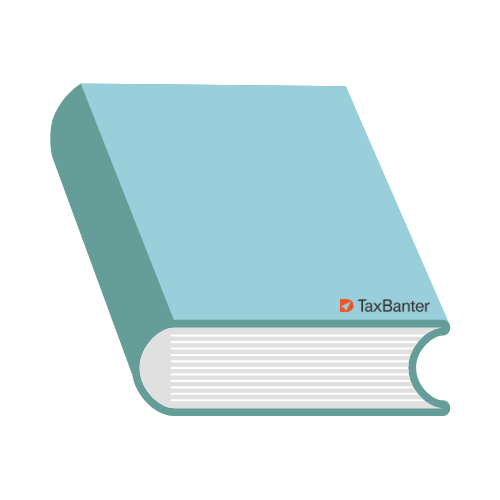We hope you enjoy our 2022 Tax Time content series.
Related content:
The ATO has issued a release notifying taxpayers that ‘income and tax deductions from rental properties’ is one of the four key areas the ATO is focusing on during Tax Time 2022. In particular, the ATO is concerned about the omission of rental income and deliberate over-claiming of rental deductions.
The ATO’s random enquiry program has found that 90 per cent of tax returns that reported rental income and deductions contain at least one error. This outcome is even though most rental property owners use a registered tax agent.
The ATO is urging rental property owners to ensure they carefully review their records before declaring income or claiming deductions, and for registered tax agents to ask a few extra questions of their clients.
We don’t expect agents to be Sherlock Holmes, but we do expect them to ask the right questions to ensure their client’s return is right.
– Assistant Commissioner Tim Loh
![]() Note
Note
Within the random enquiry program, the ATO randomly selects and profiles a sample of individual taxpayers who are not in business. Tax return data is matched to third party data. Verified taxpayers are not manually reviewed. The remainder of the sample progress to a review (the random enquiry program).
The ATO receives rental income data from a range of sources including sharing economy platforms, rental bond authorities, property management software providers, and state and territory revenue and land title authorities.
Include all rental income, such as from renting out a holiday home, short-term rental arrangements and renting part of a home. Other rental-related income such as insurance payouts and rental bond money retained are also included.
Further, income and deductions must be in line with an owner’s interest in the property, which should generally mirror the legal documents.
It is critical to understand not only whether an expenditure is deductible but also when an amount is deductible.
Some expenses can be claimed immediately, such as rental management fees, council rates, repairs, interest on loans and insurance premiums.
Other expenses such as borrowing expenses and capital works are claimed over a number of years. Depreciating assets such as a new dishwasher or new oven costing over $300 are also claimed over their effective life.
 Note
Note
The cost of a depreciating asset is immediately deductible in the year incurred is available where:
Refinancing or redrawing on a rental property loan for private expenses such as holidays or a new car, means that the amount of interest relating to the loan for the private expense cannot be claimed as a deduction.
A taxpayer cannot claim a deduction for the decline in value for assets in an existing residential rental property if the contract to purchase that property was entered into on or after 7.30 pm (AEST) on 9 May 2017.
Travel expenses related to a residential rental property are also not deductible. Travel expenses include the costs you incur on car expenses, airfare, taxi, hire car, public transport, accommodation and meals to:
Where there is rental income from a holiday home, Assistant Commissioner Tim Loh’s advice is that:
You can claim expenses for the property to the extent that they are incurred for the purpose of producing rental income, not where your family and friends stayed in the property for a mini getaway at mate’s rates, you use it yourself, say at Christmas, or you stopped renting the property out.
Other circumstances in which deductions cannot be claimed include pretending that the property is available for rent when it really is not — for example by advertising significantly above a reasonable market rate or by placing unreasonable restrictions on potential tenants.
When a taxpayer sells a rental property, CGT needs to be considered.
If the property used to be the taxpayer’s home, they may be entitled to claim the main residence exemption in relation to part of the capital gain (or even the whole gain, depending on the application of the six-year absence rule).
It is also important to note that when selling any property for a contract price of $750,000 or more, vendors must obtain a ‘clearance certificate’ from the ATO and provide it to the purchaser, otherwise 12.5 per cent of the consideration will be withheld by the purchaser — and remitted to the ATO — under the foreign resident capital gains withholding rules.
Tip
Clearance certificate applications can take up to 28 days to process so to avoid delays, sellers should apply as early as practical using the online form. Having tax affairs up to date, including all lodgments, helps speed up the assessment of an application and a certificate being issued.
Records of rental income and expenses should be kept for five years from the date of the lodgment of the relevant tax return or for five years after the disposal of the property, whichever is longer.
Adequate records should demonstrate how the expense was incurred and the extent they relate to producing rental income. They must include the name of the supplier, amount of the expense, the nature of the goods or services, the date the expense was incurred, and the date of the document.
The random enquiry program found that the rental component of the individuals not in business net tax gap is estimated at $1.5 billion. The most common reasons for tax return adjustments to rental items are a lack of, or incorrect, apportionment of expenses. The ATO also sees mistakes relating to capital works and capital allowance deductions.
The ATO has provided some rental deductions tips for tax practitioners assisting their clients:
In addition, if the taxpayer has updated their mortgage over the rental property, the practitioner should ask them if the loan also covers personal items and purposes — if so, the interest expenses need to be apportioned.
As part of its Tax Time suite of guidance, the ATO has released the Tax time toolkit for investors for 2022. The fact sheets relating to rental properties include:
 References – More information
References – More information
ATO fact sheet Residential rental properties.
Join us at the beginning of each month as we review the current tax landscape. Our monthly Online Tax Updates and Public Sessions are excellent and cost effective options to stay on top of your CPD requirements. You can also browse our recording library for past topics if you need to catch up!
Our Public Session Tax Updates are available across 16 locations nationally and are presented monthly. Click here to find a location near you.
 Personalised in-house training
Personalised in-house trainingWe can also present these Updates at your firm (or through a private online session) with content tailored to your client base – please contact us here to submit an expression of interest or visit our In-house training page for more information. You can also call us at 1300 TAX CPD to discuss your training needs.
Our mission is to offer flexible, practical and modern tax training across Australia – you can view all of our services by clicking here.
Join thousands of savvy Australian tax professionals and get our weekly newsletter.